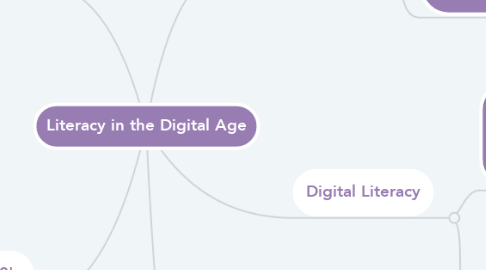
1. Similarities to the 50's
1.1. Emphasis on development and social growth
1.2. Dialectic theory is still how differences in socially accepted behavior are solved after critical evaluation and opposite theories are created
1.3. Differentiation between "knowledge" and "belief:"requirement of evidence and non-coincidental experience
1.4. Rooted in socio-cultural perspectives on literacy
2. Differences from the 50's
2.1. New technologies to aid in spread of information and availability of critique of various social-cultural themes
2.2. New research methods creates more well-aware students who are then able to be more critical thinkers
2.3. Definition of "illiteracy" has changed due to the new requirements put forth by digital technology
2.4. Socio-Cultural expectations have changed due to new literacies
3. Critical Literacy
3.1. The ability to understand and critique any literacy from multiple view points
3.2. Interpretation of texts from different cultural and societal perspectives
3.2.1. Evaluation of thoughts links to social injustice
3.2.1.1. Finding the truths of society, even if the viewpoint is against what i believed to be true.
3.2.1.1.1. Why critical literacy is important, allowing there to be development which is the ultimate goal of new literacies.
4. Digital Literacy
4.1. Online research provides opportunities for students to collect information and "belief" (not knowledge according to O'Byrne's blog post)
4.1.1. Information gained can provide students with the skills to be critical with literature
4.1.2. "Functional Illiteracy:" true in terms, of new literacies require students to think beyond text and comprehend in new ways
4.1.2.1. Digital technologies have created opportunities where students are now required of more when it comes to literacy e.g. responding and conceptualizing culturally diverse texts found through research.
4.2. Key Words: Precise.
4.2.1. Exact information found online leads to multiple perspectives, with research leading to "knowledge" after the original "belief"
5. Dialectic Critique
5.1. Two extremes (theories) lead to eventual synthesis/understanding
5.2. Guided by critical theory and is emminent in today's concept of critical literacy
5.2.1. If we don't question and/or consider the larger perspective, then there would be no societal development
5.2.1.1. Why "functional illiteracy" is a true definition; without students' ability to comprehend new digital literacies, there would be no development or critical thoughts about our culture.

